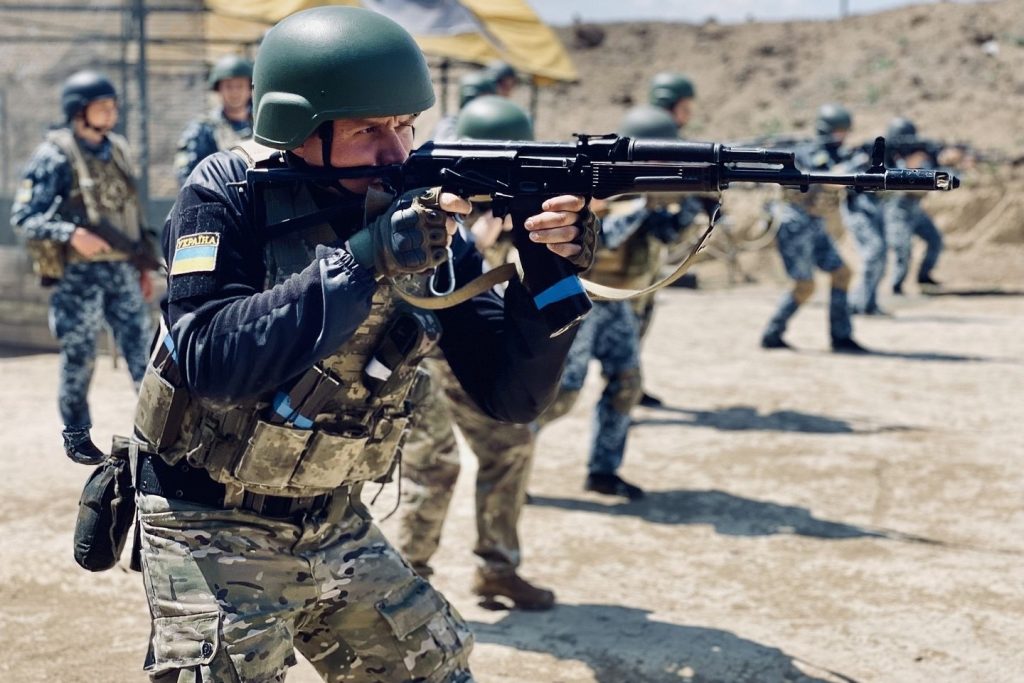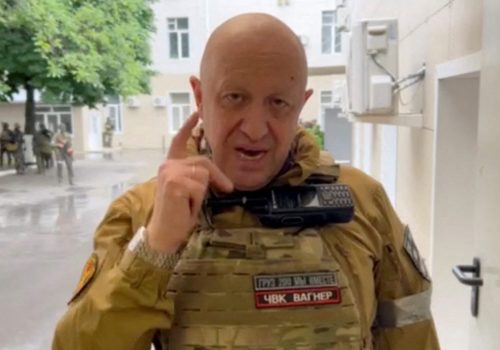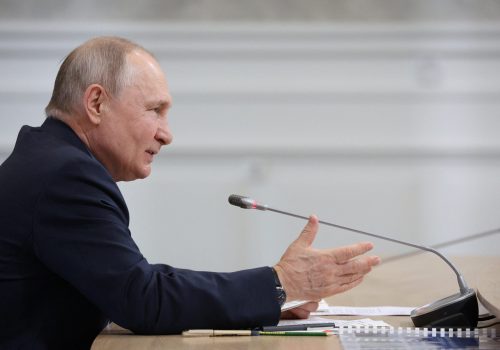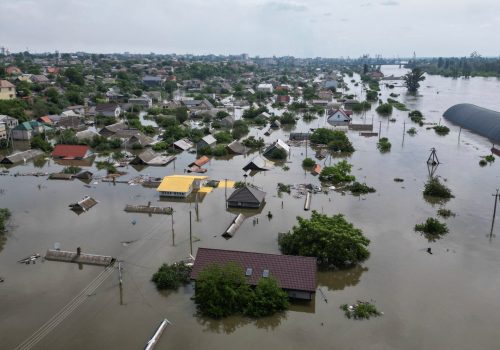A few years ago, against the backdrop of a national pro-democracy uprising in Belarus, I called on European leaders to develop a clear strategy for Eastern Europe. This envisaged EU and NATO membership for Ukraine, Moldova, Georgia, and a free Belarus. Alas, many European politicians preferred to wait and see.
It is admittedly difficult to make historic political decisions, but the price of not doing so is often horrendously high. In this case, the price is obvious: By failing to integrate Ukraine and bring the countries of Eastern Europe out of the geopolitical grey zone, Western leaders set the stage for the full-scale Russian invasion of 2022.
Further mistakes will be just as costly. Thankfully, there is now a growing consensus throughout the West that only Ukrainian victory can end the global security crisis sparked by Russia’s invasion. Nevertheless, there is still a need for greater clarity on what would constitute victory and how Europe can achieve a lasting peace.
Stay updated
As the world watches the Russian invasion of Ukraine unfold, UkraineAlert delivers the best Atlantic Council expert insight and analysis on Ukraine twice a week directly to your inbox.
Defeating Russia and securing peace will require a series of interrelated measures that go far beyond the battlefield. I have identified five key elements to a sustainable settlement that will end the current carnage and prevent any repetitions in the years ahead.
The first element is arming Ukraine sufficiently for victory. This process is well underway, but serious issues remain in terms of both quantities and timing. Every single delay in military aid costs Ukrainian lives and emboldens Russia. Ukraine’s Western partners must overcome their misplaced fear of provoking Putin and should instead seek to streamline the delivery of weapons. After all, it is now widely recognized that Russia must be defeated on the battlefield.
The second element is the strategic deterrence of Russia and creation of a new NATO-centered security architecture in Europe. There should now be no illusions: NATO alone can provide Europe with a credible and efficient security system. This means NATO membership for Ukraine. Nothing less will force Moscow to retreat. The upcoming NATO summit in Vilnius should conclude by inviting Ukraine to join the alliance. No bilateral guarantees or other compromise measures can hope to replace NATO’s Article Five or stop Russia.
The third element is Ukrainian membership of the European Union and restoration of the Ukrainian economy in close unison with the wider European economy. There has been significant progress toward this objective since the outbreak of Russia’s full-scale invasion, but overall results remain disappointing and fall far short of the many political statements on the importance of Ukraine’s European integration.
Eurasia Center events

The fourth key task is undermining Russia’s potential to act aggressively. It is hard to assess how long Russia will remain capable of waging the current war, but financial issues will play an important role in any decision-making process. Last year, official Russian military expenditure amounted to approximately $85 billion. This year, the figure is set to reach at least $108 billion. Unofficially, the total sum spent on the war is likely to be far higher. Clearly, sanctions must continue and need to intensify. Additional steps could include the prevention of dual-purpose goods transit through Russia and the maximum implementation of secondary sanctions.
In parallel, it is also vital to protect and strengthen Ukraine’s economy. Further measures are necessary to facilitate Ukrainian exports. NATO-led naval convoys should break Russia’s Black Sea blockade and enable Ukraine to resume international exports throughout the country’s southern ports. Ukraine’s external debt should undergo restructuring.
The fifth element necessary for a sustainable peace in Eastern Europe is perhaps the most important and at the same time the most intangible. Genuine victory will only be possible when Russian imperialism is no longer a threat to the region.
Once Ukraine is liberated and secure under the collective umbrella of NATO membership, the top priority for the international community will be addressing the imperial ideology that encourages Russians to commit acts of international aggression with impunity and contempt for human life. Russia must bear full legal and financial responsibility for its aggression against Ukraine and for the genocide of the Ukrainian nation. The era of Russian impunity for war crimes must end.
Unless the underlying issue of Russian imperialism is addressed at the international level, the liberation of Ukraine will provide little more than temporary relief. Confronting Russia’s imperial identity is the only way to achieve a lasting peace. This would pave the way for a new global security system and the much-needed reform of international bodies such as the UN Security Council. World peace will remain elusive until Russian imperialism is consigned to the dustbin of history.
Arseniy Yatsenyuk is Chairman of the Kyiv Security Forum and former Prime Minister of Ukraine (2014-16).
Further reading
The views expressed in UkraineAlert are solely those of the authors and do not necessarily reflect the views of the Atlantic Council, its staff, or its supporters.

The Eurasia Center’s mission is to enhance transatlantic cooperation in promoting stability, democratic values and prosperity in Eurasia, from Eastern Europe and Turkey in the West to the Caucasus, Russia and Central Asia in the East.
Follow us on social media
and support our work
Image: Ukrainian soldiers in Zaporizhia prepare for the counteroffensive. June 2023. (Handout / Latin America News Agency via Reuters Connect)




